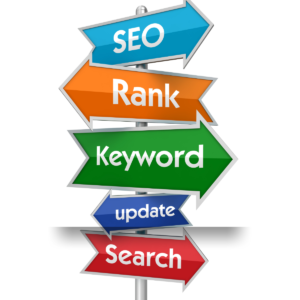
The Ultimate Solution for Busy Entrepreneurs

Struggling to manage your website while running your business? We've got you covered with a completely hands-off small business website for just $99 a month!
Ready to take the next step? Click here to schedule your 30-minute consultation and make your business life easier than ever.
Looking to create a stellar website for your small business without breaking the bank? Look no further. In this article, we explore the world of website builders specifically designed for small businesses. From user-friendly templates to drag-and-drop features, these platforms are the key to building a professional online presence. So, get ready to discover a range of website builders that are guaranteed to help your small business thrive in the digital world.
Understanding Website Builders for Small Businesses
When it comes to creating a website for your small business, there are several options to consider. One of the most popular choices is using a website builder. Website builders are tools that allow you to create and customize your own website without needing any technical skills or knowledge of coding. They provide a user-friendly interface and a variety of templates and features to choose from, making it easy for small businesses to establish an online presence. So, let’s dive into the basics of website builders and understand their importance for small businesses.
Basics of Website Builders
Website builders are platforms that provide all the necessary tools and features required to create a website. They typically offer drag-and-drop functionality, allowing you to easily add and arrange elements on your webpages. This means you don’t need to write any code or hire a professional web designer to create a visually appealing and functional website. Website builders also often include templates and themes to choose from, making it easy to achieve a professional-looking design. Additionally, they usually provide features such as image galleries, contact forms, and blog functionality to enhance the user experience.
Transform Your Business, Transform Your Life

Why Choose Host SMB Limited?
World-Class Design Meets Functionality
We don't just build websites; we create experiences. Our team of seasoned professionals designs custom, responsive websites optimized for both mobile and desktop. Your small business is unique; your website should be too. We have packages starting at $99 a month for all of your website needs taken care of.SEO Ready and Built for Growth
A beautiful website is just a start. We lay the foundation for your online success by implementing proven SEO strategies that make your site easily discoverable.Importance of Websites for Small Businesses
In today’s digital age, having a website is crucial for the success of small businesses. A website serves as a platform for potential customers to learn more about your products or services, find your contact information, and make purchases. It acts as a virtual storefront, available 24/7, allowing customers to interact with your business at their convenience. A well-designed and user-friendly website not only helps establish credibility and build trust with customers, but it also allows for better brand visibility and reach. With a website, small businesses can compete with larger competitors on a level playing field and expand their customer base.
Criteria to Consider when Choosing a Website Builder
Before diving into the world of website builders, it’s essential to consider a few criteria to ensure you choose the right one for your small business. Firstly, ease of use is crucial. Look for a website builder with a user-friendly interface that doesn’t require any coding skills. This will make it easier and quicker to create and edit your website. Secondly, consider the features and functionality offered by the website builder. Ensure they align with your business needs and goals, such as e-commerce capabilities or the ability to integrate third-party tools. Lastly, think about the scalability of the website builder. As your business grows, you’ll want to ensure that the website builder can accommodate your evolving needs.
Types of Website Builders
Now that we have a basic understanding of website builders, let’s explore the different types available in the market.
Drag-and-drop Website Builders
Drag-and-drop website builders are the most popular and user-friendly type of website builder. They allow you to build your website by simply dragging and dropping pre-designed elements onto your webpages. These elements can include text boxes, images, videos, and more. The advantage of drag-and-drop website builders is the ease of use and the ability to quickly create a visually appealing website without any coding knowledge. Examples of popular drag-and-drop website builders include Wix, Weebly, and Squarespace.
Content Management System (CMS) based Builders
Content Management System (CMS) based website builders are a more advanced option for small businesses. The most well-known CMS is WordPress, which offers a combination of user-friendliness and flexibility. With a CMS-based website builder, you have more control over the design and functionality of your website. It allows you to create dynamic and interactive webpages and provides a wide range of plugins and themes to enhance your website’s features. While CMS-based builders require a bit more technical knowledge than drag-and-drop builders, they offer more customization options.
E-commerce Specific Website Builders
If your small business focuses heavily on e-commerce, an e-commerce specific website builder may be the best choice for you. These website builders are specifically designed to cater to online stores and provide features such as shopping carts, secure payment gateways, and inventory management. They also often include templates and tools tailored to the needs of online retailers. Examples of popular e-commerce specific website builders include Shopify and BigCommerce.
Comparison of Top Website Builders
Now that we have explored the different types of website builders, let’s do a comparison of some of the top players in the market:
Wix: Features and Ease of Use
Wix is one of the most popular drag-and-drop website builders available. It offers a vast selection of templates and features, allowing small businesses to create stunning websites without any coding knowledge. Wix provides an intuitive drag-and-drop editor and a wide range of design options, making it easy to customize your website. It also offers a variety of add-ons and integrations, including e-commerce capabilities.
Squarespace: Design and Functionalities
Squarespace is known for its modern and visually appealing designs. It offers a range of sleek and professional templates that are mobile-responsive. Squarespace provides an easy-to-use editor with drag-and-drop functionality, allowing you to create a stunning website without any coding skills. It also offers features such as built-in blogging and e-commerce capabilities, making it suitable for a variety of small business needs.
Weebly: Pricing and Integrations
Weebly is a drag-and-drop website builder that focuses on affordability. It offers a free plan with limited features, making it a great option for budget-conscious small businesses. Weebly provides an easy-to-use drag-and-drop editor and a variety of templates to choose from. It also offers a range of integrations, allowing you to extend the functionality of your website with ease.
Shopify: E-commerce Capabilities
Shopify is a leading e-commerce specific website builder. It’s designed specifically for creating online stores, offering a wide range of features tailored to the needs of small businesses in the e-commerce space. Shopify provides a simple and intuitive interface, making it easy to set up your online store. It offers features such as product management, secure payment gateways, and inventory tracking, making it a comprehensive solution for small businesses looking to sell products online.
Understanding Hosting for Business Websites
Now that we have explored website builders, let’s delve into the topic of hosting for business websites.
What is Web Hosting?
Web hosting is the process of storing your website’s files and making them accessible to users on the internet. When you create a website using a website builder, the website builder’s servers host your website files and ensure they are available to visitors who access your domain name.
Types of Web Hosting
There are different types of web hosting available for small businesses. Some of the common types include shared hosting, VPS hosting, and dedicated hosting.
Shared hosting is the most affordable option and is suitable for small businesses with low to moderate web traffic. In shared hosting, multiple websites share servers, which can sometimes result in slower website loading times if other websites are experiencing high traffic.
VPS hosting provides small businesses with more control and resources than shared hosting. It is a step up in terms of performance and security. With VPS hosting, your website is hosted on a virtual private server, which provides a dedicated amount of resources and avoids the potential slowdowns of shared hosting.
Dedicated hosting is the most powerful and expensive hosting option. With dedicated hosting, your website is hosted on a dedicated physical server, providing maximum performance, control, and security. This option is typically suitable for large-scale businesses with high web traffic and specific hosting requirements.
Choosing the Right Hosting for Your Business
When choosing the right hosting for your business, consider factors such as your website’s traffic levels, security needs, and budget. If you are just starting, shared hosting may be sufficient. As your business grows and your website’s traffic increases, you can consider upgrading to VPS or dedicated hosting for better performance and security.
Benefits of Using a Website Builder
Using a website builder for your small business offers several advantages that make it an attractive option. Let’s explore some of the key benefits.
Ease of Use
One of the most significant advantages of using a website builder is the ease of use it offers. Website builders provide a user-friendly interface and intuitive drag-and-drop functionality, allowing you to create and edit your website without any technical skills. You don’t need to write a single line of code or hire a professional web designer. This saves time, money, and resources, making it an ideal choice for small businesses with limited budgets and resources.
Affordability
Website builders are generally an affordable option for small businesses. Most website builders offer various pricing plans to suit different budgets. Some even provide free plans with limited features, allowing small businesses to establish an online presence at no cost. With a website builder, you don’t need to invest in expensive web design services or ongoing maintenance fees. This affordability makes it accessible for all kinds of small businesses, regardless of their financial constraints.
Quick Turnaround Time
Time is of the essence for small businesses, and building a website from scratch can be time-consuming. With a website builder, you can significantly reduce the time it takes to create a website. The drag-and-drop functionality and pre-designed templates provided by website builders allow you to create a professional-looking website in a matter of hours. This quick turnaround time ensures that your business can establish an online presence and start reaching potential customers promptly.
Customizability
Website builders provide a range of customizable templates and themes, allowing you to personalize your website according to your brand’s identity. You can easily update and modify the content on your webpages, add new pages, and rearrange elements to suit your business needs. Website builders also often include plugins or widgets that can enhance the functionality of your website, such as contact forms, image galleries, and social media integrations. This customizability ensures that your website aligns with your brand and provides a unique online experience for your customers.
Potential Limitations of Website Builders
While website builders offer numerous benefits, it’s essential to understand their limitations before making a decision. Let’s explore some potential limitations of website builders.
Limited Flexibility and Scalability
Website builders provide a convenient and user-friendly solution for small businesses, but they may have limitations when it comes to flexibility and scalability. While drag-and-drop website builders offer a wide range of templates and design options, you may find it challenging to create a completely unique and personalized design. Additionally, as your business grows and your website’s needs evolve, you may encounter limitations with the features and functionality offered by the website builder. It’s important to assess your long-term goals and ensure that the website builder can accommodate your future needs.
Transferability Issues
Another potential limitation of website builders is the lack of transferability. If you decide to switch to a different website builder in the future or move to a different platform altogether, you may face challenges in transferring your website’s design and content. Each website builder has its own proprietary tools and coding structure, making it difficult to migrate your website seamlessly. This lack of transferability can potentially lock you into a particular website builder, limiting your options down the line.
Potential Hidden Costs
While website builders are generally affordable, it’s important to be aware of potential hidden costs. Some website builders offer free plans with limited features, enticing users to upgrade to paid plans for additional functionality. Additionally, certain features or integrations may incur additional charges. It’s crucial to carefully review the pricing and features offered by the website builder to ensure that you don’t encounter unexpected costs down the line. Consider your business’s needs and budget when choosing a pricing plan to avoid any surprises.
Enhancing Your Website with SEO
Once you have created your website using a website builder, it’s important to optimize it for search engines. Search Engine Optimization (SEO) plays a crucial role in driving organic traffic to your website and improving its visibility in search engine results. Let’s explore some key aspects of SEO and how website builders can help.
Importance of SEO for Small Businesses
For small businesses, SEO is instrumental in improving online visibility and reaching potential customers. With effective SEO strategies, small businesses can compete with larger competitors on search engine results pages. SEO helps small businesses establish credibility and trust with customers, increase brand awareness, and drive targeted organic traffic to their websites. It allows potential customers to discover your business when they search for relevant keywords or phrases related to your products or services.
In-built SEO Tools in Website Builders
Most website builders offer built-in SEO tools and features to help you optimize your website for search engines. These tools typically include meta tag optimization, URL customization, and sitemap generation. Meta tags are snippets of code that provide information about your webpage to search engines. Website builders often allow you to customize your meta tags, including the page title and meta description, which can significantly impact your website’s search engine rankings. Additionally, website builders usually generate XML sitemaps, which make it easier for search engines to crawl and index your webpages.
Best Practices for Optimizing Your Website
While website builders provide in-built SEO tools, it’s important to follow best practices to maximize your website’s visibility. This includes conducting thorough keyword research to identify the most relevant and profitable keywords for your business. Incorporate these keywords naturally into your website’s content, including headings, titles, and image alt text. Additionally, ensure your website has a clean and organized structure, with easy navigation and mobile responsiveness. Regularly update your website’s content with fresh and engaging content, as search engines prioritize websites that provide value to users.
Integrating E-commerce Features in Your Website
For small businesses that focus on selling products or services online, integrating e-commerce features into your website is crucial. Let’s explore the benefits of e-commerce for small businesses and the e-commerce features provided by website builders.
Benefits of E-commerce for Small Businesses
E-commerce offers numerous benefits for small businesses. It allows you to reach a global audience and sell your products or services 24/7, without the limitations of a physical location. E-commerce eliminates geographical boundaries and expands your customer base beyond localities. Additionally, it reduces overhead costs associated with brick-and-mortar stores, such as rent, utilities, and inventory management. E-commerce also offers opportunities for personalized marketing, customer data analysis, and targeted promotions, enabling you to enhance customer engagement and increase sales.
E-commerce Features Provided by Website Builders
Website builders often provide a range of e-commerce features to help small businesses establish and manage their online stores. These features typically include shopping cart functionality, secure payment gateways, inventory management, and order tracking. Website builders also often offer templates and design options specifically tailored for e-commerce websites, ensuring a visually appealing and user-friendly online shopping experience for your customers. Additionally, some website builders integrate with popular e-commerce platforms such as PayPal, Stripe, and Square, making it easy for small businesses to accept online payments.
Tips to Optimize Your E-commerce Site
To optimize your e-commerce site, it’s important to focus on key areas such as product descriptions, images, and user experience. Craft compelling and accurate product descriptions that highlight the unique selling points and benefits of your products. Utilize high-quality product images that clearly showcase your offerings from different angles. Ensure your website’s navigation and search functionality are user-friendly to help customers find the products they need quickly. Incorporate customer reviews and ratings to build trust with potential buyers. Additionally, regularly analyze your website’s performance and make data-driven decisions to improve your e-commerce strategies.
Scaling Your Website as Your Business Grows
As your small business grows, it’s essential to anticipate future needs and ensure that your website can scale accordingly. Let’s explore some considerations and potential issues with scaling your website using website builders.
Anticipating Future Needs
When choosing a website builder, it’s important to consider your business’s long-term goals and anticipate future needs. As your business grows, you may require additional features and functionality to meet changing customer demands. Ensure that the website builder you choose can accommodate these future needs. Look for scalability options, such as the ability to add more pages, integrate advanced plugins or third-party tools, and handle increased website traffic. Scalability is crucial to ensure a seamless user experience and maintain your website’s performance as your business expands.
Potential Issues with Scalability in Website Builders
While website builders offer convenience and ease of use, they may have limitations when it comes to scalability. As your website grows and attracts more visitors, you may encounter issues such as slower loading times or performance bottlenecks with certain website builders. This is particularly true for shared hosting environments, where multiple websites share server resources. It’s important to choose a website builder that offers scalability options, such as the ability to upgrade to a higher hosting plan or migrate your website to a different hosting provider if necessary.
How to Effectively Scale Your Website
To effectively scale your website, regularly monitor its performance and analyze key metrics such as website traffic, bounce rate, and conversion rate. Identify any performance bottlenecks or areas for improvement and take appropriate actions. This may include optimizing your website’s code and images, enabling caching, or upgrading your hosting plan to handle increased traffic. Consider utilizing a content delivery network (CDN) to improve website loading times and ensure a fast and seamless user experience, regardless of geographic location. Regularly review your website’s design and navigation to ensure it can accommodate additional pages and content as your business expands.
Conclusion: Choosing the Right Website Builder
In conclusion, choosing the right website builder is a crucial decision for small businesses looking to establish an online presence. Consider factors such as ease of use, features and functionalities, pricing, and scalability when making your decision. Evaluate your business’s needs and long-term goals to find a website builder that aligns with your objectives. Remember to optimize your website for search engines using SEO best practices and consider integrating e-commerce features if relevant to your business. With a well-designed and user-friendly website, your small business can effectively reach and engage with potential customers, boost brand visibility, and drive the growth and success of your business.
3000 words.
Unlock the Future of Easy Business Management

Are you overwhelmed by website management tasks? Say no more. Experience the luxury of a hands-off small business website for just $99 a month!
Why wait? Click here to book your 30-minute consultation and simplify your business operations like never before.


